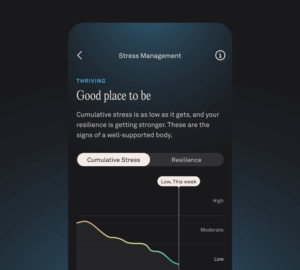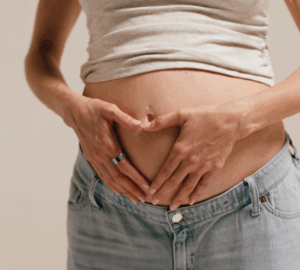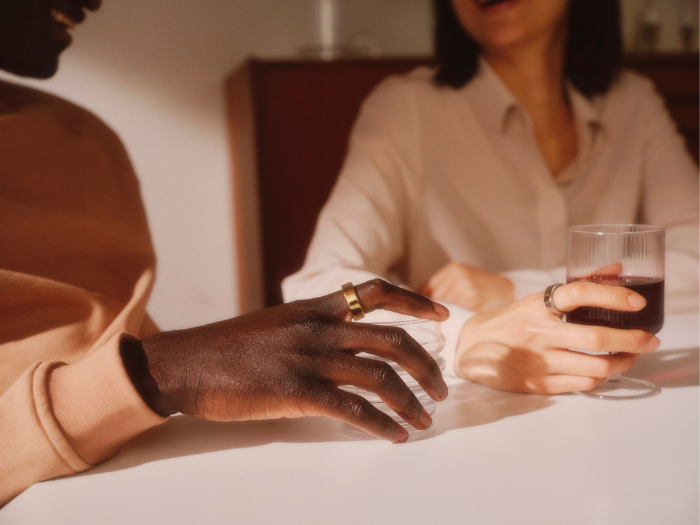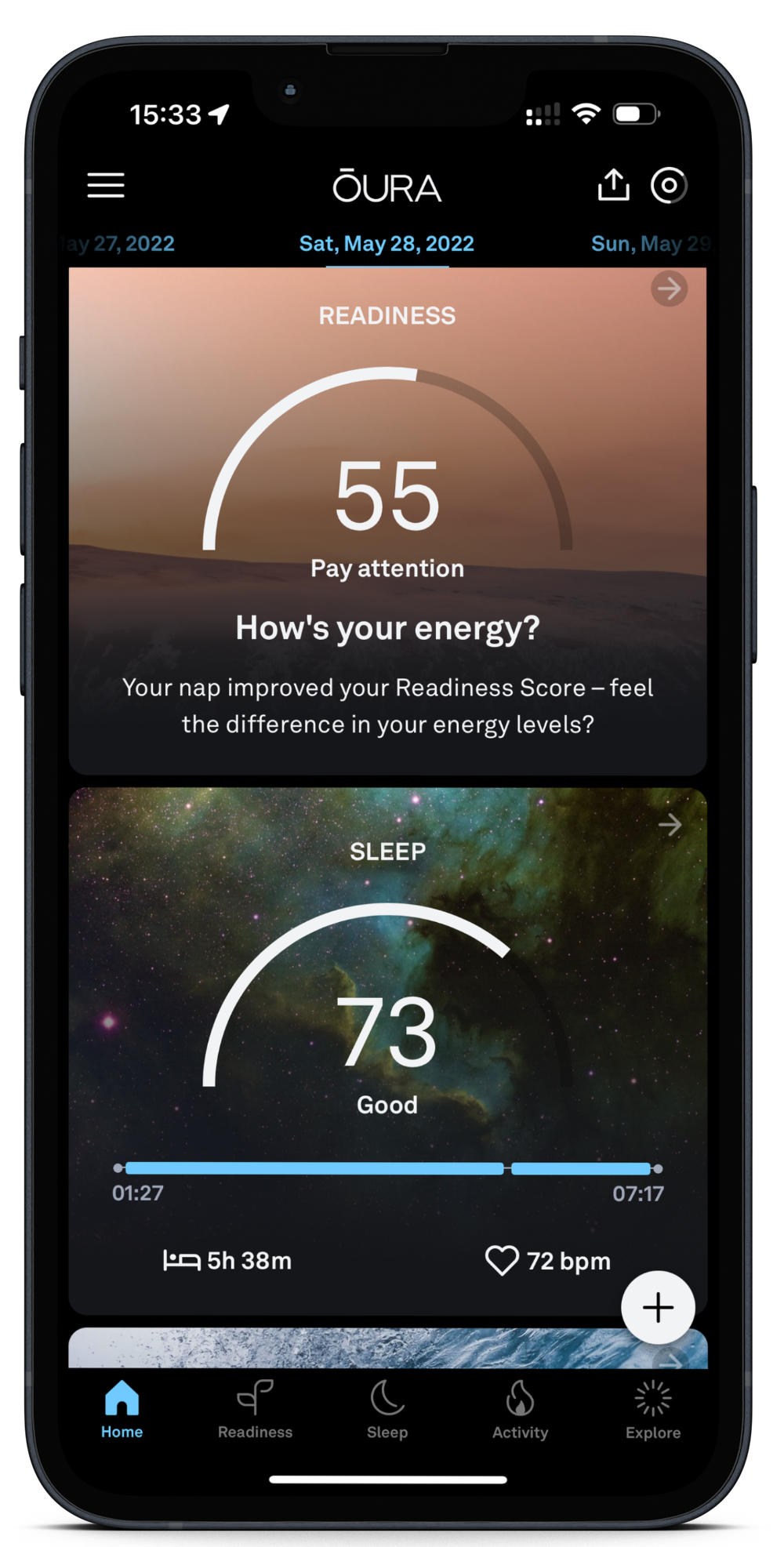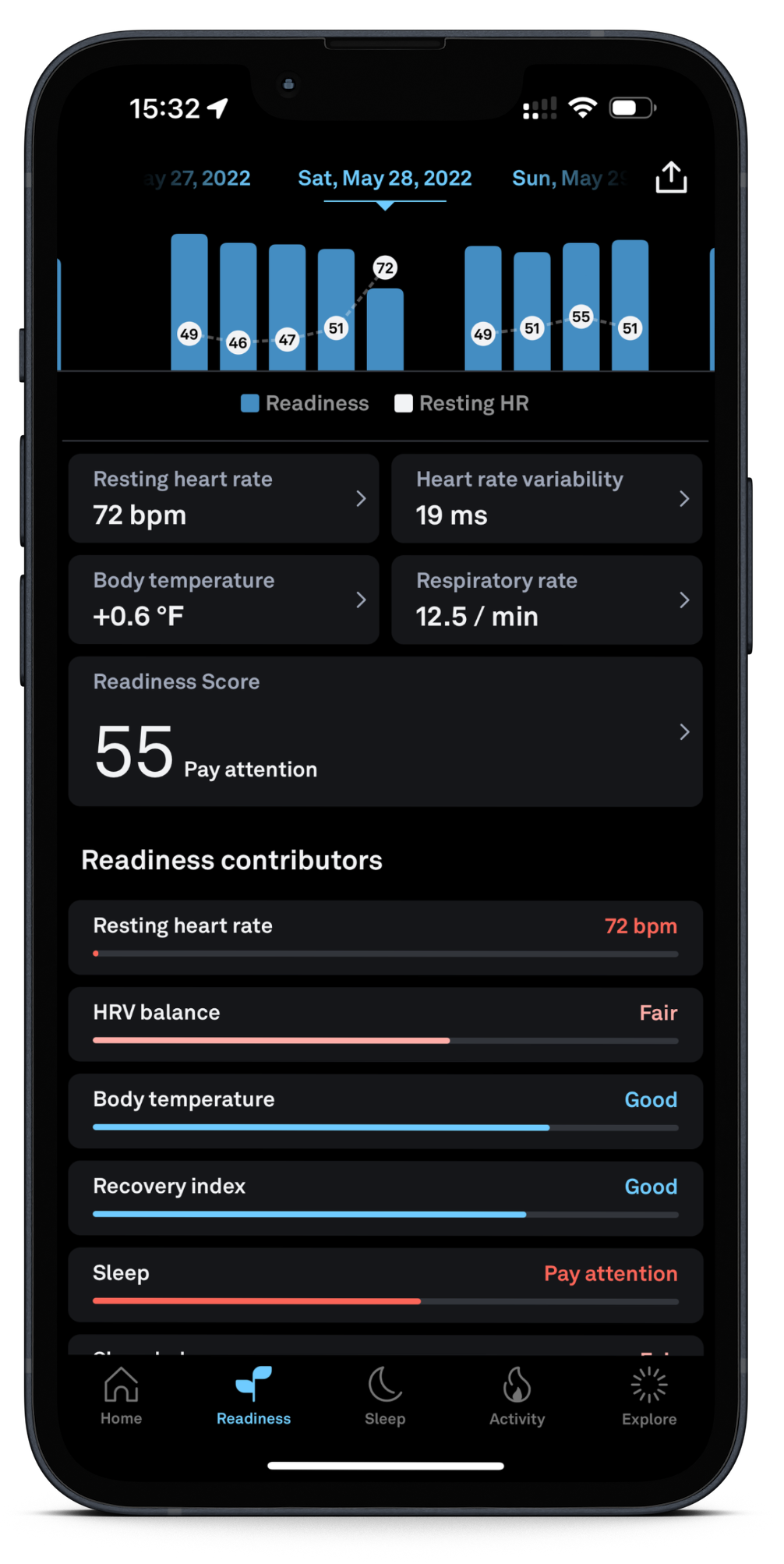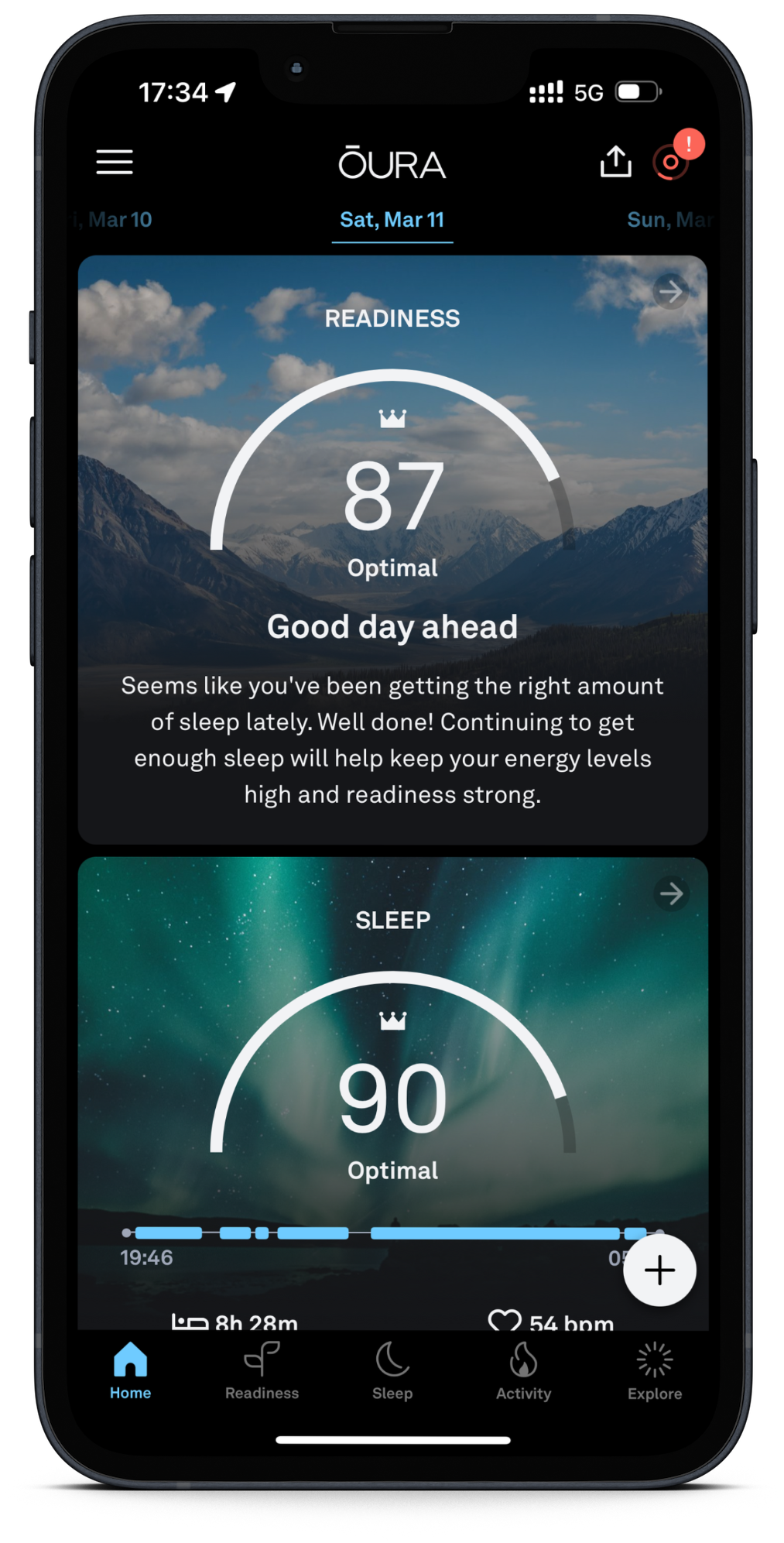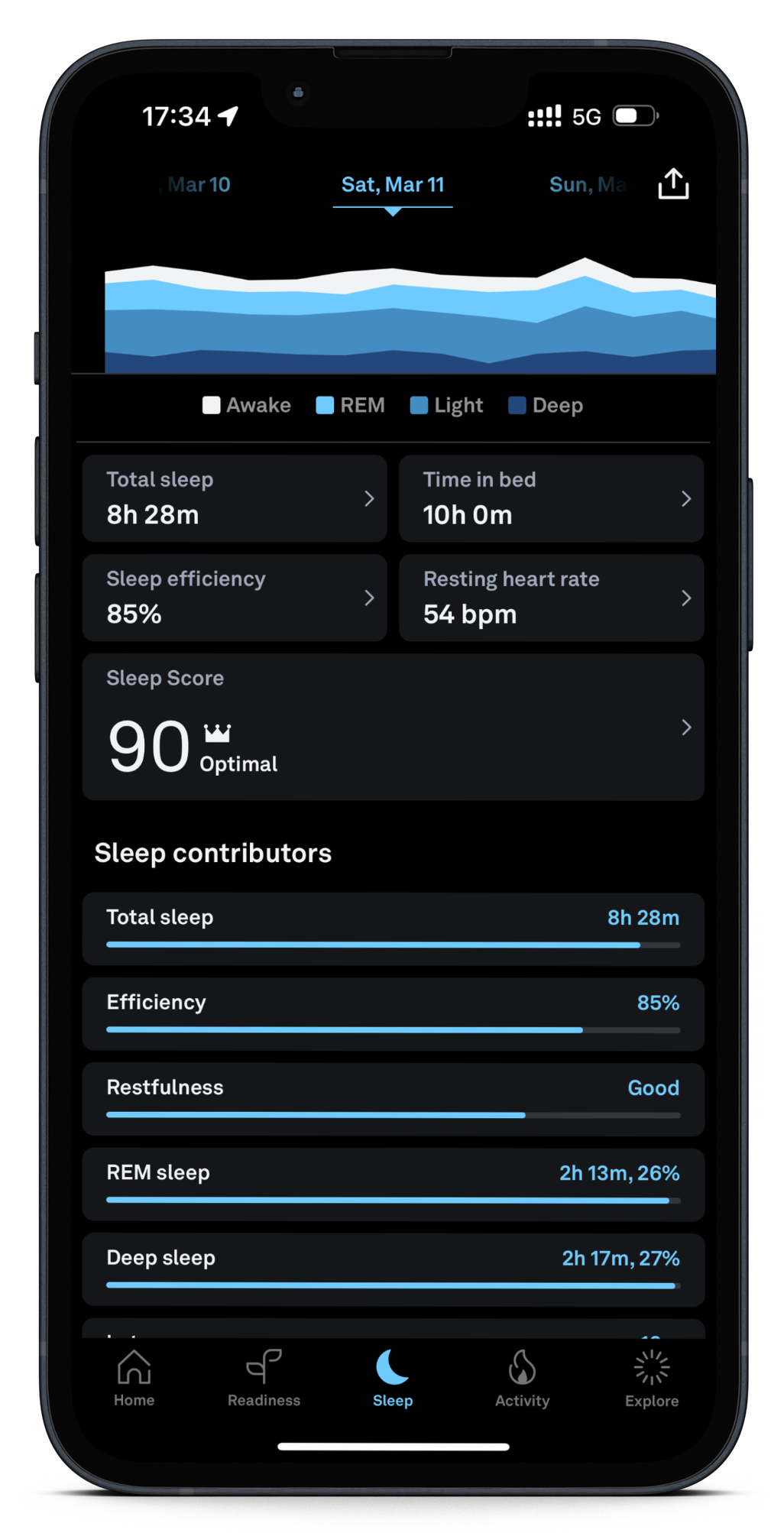- The sober curious movement advocates a more mindful and intentional approach to drinking — without giving up alcohol completely.
- Numerous studies have attributed a lower alcohol intake to better health markers, including better sleep and lower risk of cardiovascular and neurological problems.
- Identifying cues to drink and interrupting them, combined with small changes and honest self-reflection, are effective ways to reduce your intake, according to neuroscience.
Most of us know that alcohol isn’t great for you. Yet, one in three of us still drink – up to an average of four drinks a week in the U.S. Sipping a glass of wine to relax after a stressful day or drinking a beer while watching football is socially accepted and even culturally ingrained for many of us – myself included.
Last year, after completing a Dry January challenge, I started contemplating a life without alcohol. I’ve been “sober curious” for a while — I’ve never been a big drinker, have often abstained for long periods.
But at one point or another, I’d succumb to social pressure or end up drinking to relieve social anxiety or stress. However, I’d always feel worse the next day – and my Oura scores proved it.
My Oura data after an evening drinking alcohol:
My Oura data after an alcohol-free Friday night:
I’ve now been alcohol-free for a year, and I can’t see myself going back. I’ve realized that the small dopamine boost that alcohol temporarily gives you, is a high price to pay for the side effects – poor sleep, “hangxiety,” and a huge dip in mood and motivation.
As the sober curious movement continues to gain steam, I was curious to learn more about the impact of alcohol, how to change your ingrained behaviors surrounding it, and what science says about ways to cut back.
Note that the following content is not designed, nor does it provide guidance, for individuals dealing with alcohol addiction or seeking recovery from alcoholism.
What Is the Sober Curious Movement?
If you’ve ever had a hangover that has made you say, “I’m never drinking again” or you’ve seriously contemplated cutting back on alcohol – you may be sober curious already. “Sober curious” refers to an intentional curiosity about your alcohol consumption. It doesn’t necessarily require you to be teetotaler, but it does encourage reducing your intake.
The movement has been popularized online, and there’s an ever-increasing community of people giving it a go. Online search interest for terms relating to sober curiosity, like “zero alcohol beer,” has been steadily increasing since the pandemic, indicating that something is shifting.
READ MORE: Stress to Serenity: OYNB Uses Oura Ring to Transform Members’ Relationships with Alcohol
Why You Should Limit Alcohol
Alcohol, as you might know already, can do major damage to both your body and brain. However, you may have also heard that having a glass of wine or a casual drink every so often is no biggie — and could even benefit you: “There’s a belief that a glass of red wine a day is cardioprotective and neuroprotective, because of the polyphenol content,” says Liadan Gunter, a neuroscientist, behavioral scientist, and founder of The Rewiring Lens. “But that’s a myth.”
The truth: “Alcohol is a toxin for the body and brain, and we see brain shrinkage in people who drink moderately, defined as four drinks a week,” says Gunter. “This shrinkage, and the associated consequences like neurological problems and cognitive decline, worsen the more you drink.” And science has caught up: According to a statement released by the World Health Organization at the beginning of the year: no level of alcohol consumption is advantageous.
Fortunately, there’s hope: “In most people, brain shrinkage eventually reverses when they stop drinking,” Gunter says. Plus, cutting back on drinking can offset the damage already done: Research shows that when people stop drinking, they can improve their sleep, lower the risk of cardiovascular disease and cancer, lose weight, improve cognitive performance, and even boost immunity.
| Member Story: Gemma R. reported substantial improvements in her mental and physical health after going alcohol-free, and she saw it reflected in her Oura data. |
5 Challenges to Cutting Back
If you are contemplating an alcohol-free life, awareness is key — and knowing what kind of obstacles you may face can help you in the long run.
- Social norms: “Alcohol is ingrained in the fabric of society,” says Gunter. “It’s a learned behavior, reinforced with social pressure.” Accepting the idea that socializing doesn’t have to revolve around alcohol can be a difficult transition.
- Peer pressure: Friends, coworkers, or family members can pressure you into drinking, particularly if they accept the social norms around alcohol use.
- Stress and anxiety: An online survey reported that 29% of people turn to alcohol to deal with stress. “If you use alcohol as a crux for stress or anxiety, those feelings might be heightened initially,” says Gunter. “I advise people to find other positive coping mechanisms, and give it time.”
| Member Tip: Use Oura’s Daytime Stress feature to compare your stress levels after a night of drinking vs. nights when you don’t drink. You may be surprised to see that your stress is higher as your body clears the alcohol from your body. |
- New routines and activities: If your typical weekend activities revolve around drinking, you may have to find new hobbies and activities.
- Difficult emotions: Social anxiety, depression, loneliness, and boredom are all risk factors for alcohol use. Without alcohol, these emotions may come to the surface. It’s important to seek professional help if you find yourself struggling.
READ MORE: Can Oura Ring Help Predict Symptoms of Depression & Anxiety?
6 Science-Backed Strategies to Drink Less (Or Not At All)
1. Identify your triggers.
Any positive change starts with self-awareness – a philosophy reinforced by neuroscience. “People repeat behaviors because of reinforced neural pathways. When you recognize certain environmental or social triggers that lead to drinking, you gain the power to interrupt those automatic responses,” explains Gunter.
Your cues may include stress, social events, celebrations, or simply seeing your favorite beer in the fridge. When you do drink, start to observe what comes before it. You can even choose to write it down, to start building an understanding of what your main cues and triggers are.
2. Interrupt the cycle.
Let’s say stress is your cue to drink. Finding new ways to manage your stress, like practicing breathwork or spending time in nature, can help to interrupt this cycle. “Anyone who wants to limit their alcohol should avoid having it in their house,” says Gunter. “When it’s readily available, it’s more likely to become a cue.”
Other ways to interrupt the cycle may include changing the places you socialize (avoiding bars), changing your evening routine (a tea instead of a glass of wine), or incorporating alternative activities during times when the cue is most prominent.
READ MORE: 9 Simple (and Science-Backed!) Ways to Lower Stress
3. Start with small changes.
It doesn’t have to be all-or-nothing. “Starting with small changes allows your brain to gradually adapt to new behaviors, forming and reinforcing neural connections associated with those changes,” Gunter says.
In fact, because drastic behavior changes are so sudden, they often aren’t sustainable, she notes: “Only a small percentage of people who attempt Dry January are successful, and it’s because they’re not dealing with the root issue of how to drink more responsibly.”
Based on your brain’s capacity for neuroplasticity, it might be more sustainable to decrease your alcohol intake incrementally. “For brain health, I recommend people drink a maximum of once or twice a month. But if this seems unattainable for you, lowering your intake to any degree is beneficial.”
| Member Tip: If you do opt to go alcohol-free, you can watch how your Scores and biometrics (heart rate variability, resting heart rate) change over time using the Trends view. |
4. Find substitutions to avoid FOMO.
“Order a non-alcoholic beverage or a mocktail, so you still have the same ritual,” says Gunter. Alcohol gives you a dopamine rush, but studies show that non-alcoholic beverages can still give you a dopamine boost. “Get creative, and find new drinks that bring you joy.”
READ MORE: 7 Tasty Alcohol-Free Drink Ideas for Dry January
5. Look at the data.
Everyone knows how bad a hangover can be – but even the most health-minded people can still drink too much. “Many people are out of touch with their body, and ignore how much alcohol impacts their mood, sleep, and energy levels,” says Gunter. Compare the difference in your Oura data after a night of drinking, you may be surprised! In Oura data, we see that alcohol increases resting heart rate by 4.8%, lowers heart rate variability by 12.1%, and lowers deep sleep by 6.9%.
READ MORE: How Does Alcohol Impact Oura Members?
6. Be more conscious in your decision-making.
“Alcohol consumption is often about fulfilling learned behaviors,” says Gunter. “Most people don’t reflect on whether it’s a positive or negative thing for them.”
In my experience, a fundamental part of being sober curious is simply making conscious choices about when I drink, rather than giving into pressure or habit. Previously, if I were going for dinner with friends I’d have a drink, even if I didn’t necessarily want to. I did what was socially expected.
Now, I interrupt the habit by asking myself, “Do I actually want or need a drink right now?” And the answer was nearly always no. Next, I’d ask myself, “So why am I considering it?” That answer was usually related to anxiety, stress, or social pressure.
Here are a few thought-starters that have helped me make more conscious decisions:
- Think about how you’ll feel the next morning after drinking, compared to how you’ll feel if you stay sober.
- Start your social event with a tasty non-alcoholic drink. If you still want alcohol after that, go for it — thoughtfully.
- Reflect on the factors making you want to drink, such as social pressure, stress, or anxiety. Consider ways to address these issues more consciously, whether through self-soothing strategies or seeking professional help to work through them.
Quitting alcohol has given me more time to spend on hobbies that bring me joy – I finally finished writing my first book, and I’ve picked up running. This experience has led me to discover deeper and more aligned friendships, gain new skills, and feel consistently healthier and happier, day in day out, without the peaks and valleys that alcohol brings.
RELATED: How Alcohol Impacts Your Sleep







